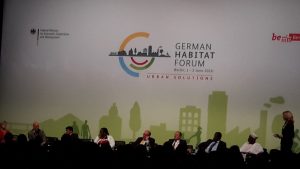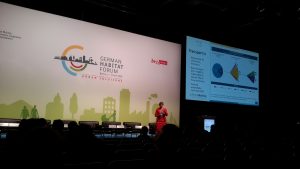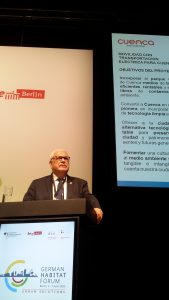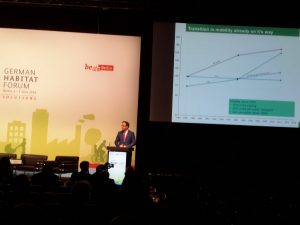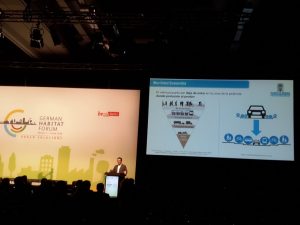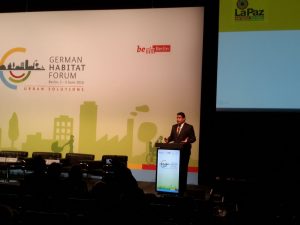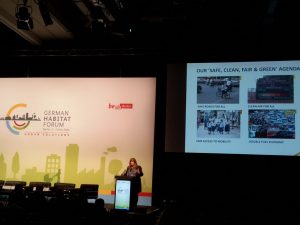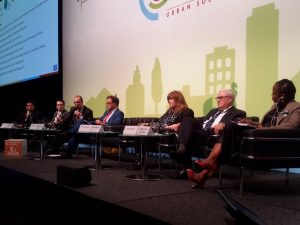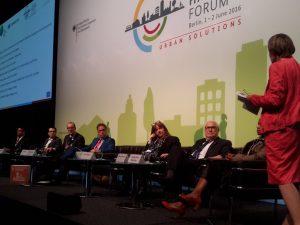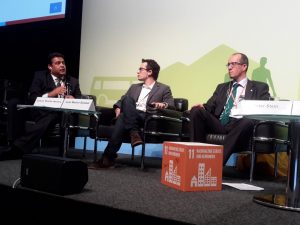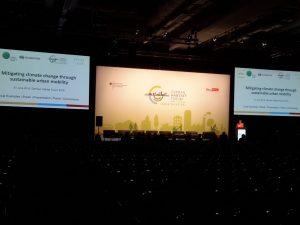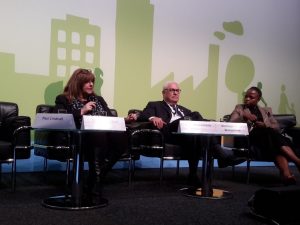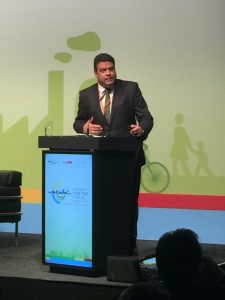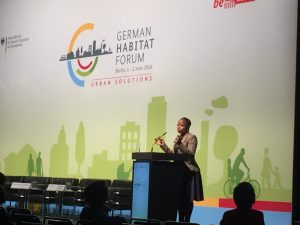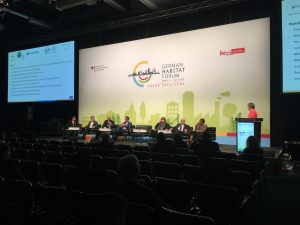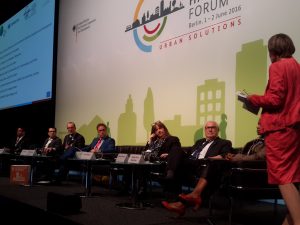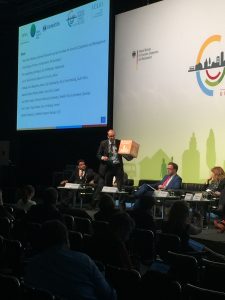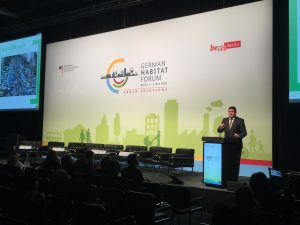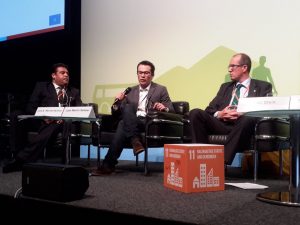During the German Habitat Forum held on 1-2 June 2016 in Berlin, Germany, a series of parallel workshops took place covering several topics contributing to the debate on sustainable solutions to urban challenges.
ICLEI partnered with FIA Foundation, the Green Climate Fund and the City of Johannesburg to conduct a session titled Mitigating climate change through sustainable urban mobility. Representatives of local governments showcased real examples of how implementing ecomobility has strengthened their climate change mitigation strategy.
Strategies that have already proven successful and specific ways of promoting sustainable urban development were then presented by city leaders from La Paz, Bolivia, Rotterdam, The Netherlands, Cuenca, Ecuador, Johannesburg, South Africa and Medellin, Colombia. The mayors and deputy mayors showed how they are making their cities ecomobile to improve quality of life, promote and provide travel choices, and ensure social equity and inclusion.
Beside city examples, Sheila Watson, Director of Environment at the FIA Foundation, presented the foundations agenda namely Safe, clean, fair and green sustainable urban mobility. The strategy includes, road safety, air quality, affordable and accessible low carbon transport, such as non motorised transport and improved fuel economy. In regard to Habitat III, to be held in October 2016 in Quito, Ecuador, FIA Foundation is calling for safe routes to school.
At the panel discussion, a special focus on the various financial options to mobilize resources to materialize actions on ground was discussed. Cities called for financial investments to promote public transport and decarbonising transport. Decentralised decision making was also recommended by the panel to enable cities implement ecomobility and to take ownership of the projects.
Outcomes of such session are reflected in the Berlin Recommendations for the Cities of Tomorrow which states:
Cities and national governments should develop sustainable urban mobility policies that provide for universal, gender responsive access to safe, clean and affordable transport for all. The transformation and decarbonisation of urban transport systems will be achieved through optimized modal mixes in urban mobility networks and compact and mixed-use urban patterns that encourage eco-mobility, including biking, walking, shared and e-mobility and public transport. Eco-mobility is essential for the quality of life, mitigating greenhouse gas emissions, achieving social equality, improving air quality and public health, and strengthening the local economy.
Presentations are available at:



